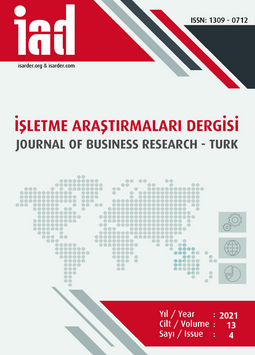Tepe Yöneticilerin Kişisel Güç Kaynakları ve Kullandıkları Sert Etkileme Taktiklerinin Algılanan Örgütsel Politika Üzerine Etkisi
The Impact of Top Managers’ Personal Power Bases and Use of Hard Influence Tactics on Perceived Organizational Politics
Author(s): Şeyda Nur Seçkin, Mehmet TİKİCİSubject(s): Business Economy / Management, Organizational Psychology, Management and complex organizations, Human Resources in Economy
Published by: Orhan Sağçolak
Keywords: Personal Power Bases; Hard Influence Tactics; Organizational Politics Perceived;
Summary/Abstract: Purpose – In this study, it was aimed to examine the effect of top managers’ personal power bases and use of hard influence tactics on employees’ organizational politics perceptions. In addition, whether the relationship between top managers’ use of hard influence tactics and perceived organizational politics is moderated by their personal power bases was tested. Design/methodology/approach– Using a cross-sectional survey method, data was obtained from 315 middle managers working in big and medium-sized manufacturing firms operating in TR62 Region (Adana-Mersin) during the time period of July 2014-December 2014. Obtained data was analyzed by conducting reliability, factor, correlation and multiple hierarchical regression analyses. Findings – Study findings showed that top managers’ personal power bases have a negative; their use of hard influence tactics has a positive effect on perceived organizational politics. Moreover, the moderating effect of personal power bases on top managers’ use of hard influence tactics- perceived organizational politics relationship was found to be significant. According to simple slope test results, when top managers’ power bases are low, their use of hard influence tactics has a positive effect on hard influence tactics affects organizational politics perceived negatively. Discussion – Study findings may contribute to the relevant literature by broadening the understanding of how top managers affect employees’ organizational politics perceptions via their personal power and using hard influence tactics. For future researches, replicating the study with other occupational groups, using longitudinal research designs to reveal casual relationships among the study variables and examining destructive leadership, hubris syndrome, authoritarian leadership with taking into employees’ power distance orientations account can be suggested.
Journal: İşletme Araştırmaları Dergisi
- Issue Year: 13/2021
- Issue No: 4
- Page Range: 3755-3769
- Page Count: 15
- Language: Turkish

